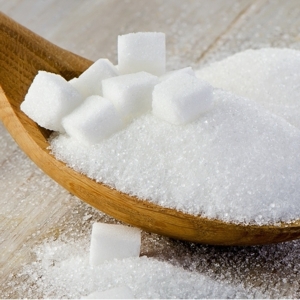Here’s the latest alarming discovery about excess sugar in your diet. Researchers have determined that this is can result in the production of extra fat in your liver. And a fatty liver and lead to a number of extremely unhealthy consequences. Excess sugar can also result in developing type 2 diabetes…
 Totally into protesting ‘body shaming’; totally oblivious to the effects of
Totally into protesting ‘body shaming’; totally oblivious to the effects of
excess sugar in their livers and toward developing type 2 diabetes.
Here’s a case of the experts knowing for a long time that there was some kind of connection between excess added sugar and the development of diabetes or fatty liver disease.
What they did
According to an abstract of the study report: “Ninety-four healthy young men took part in the study. Every day for a period of seven weeks, they consumed a drink sweetened with different types of sugar, while the control group did not. The drinks contained either fructose, glucose or sucrose (table sugar which is a combination of fructose and glucose). The researchers then used tracers (labeled substances that can be traced as they move through the body) to analyze the effect of the sugary drinks on the lipid metabolism.”
What they found
Overall, the participants did not consume any more calories than before the study. The sugary drink increased satiety and they therefore reduced their calorie intake from other sources. Nevertheless, the researchers observed that fructose has a negative effect: “The body’s own fat production in the liver was twice as high in the fructose group as in the glucose group or the control group. And this was still the case more than twelve hours after the last meal or sugar consumption,” says says Study Leader Philipp Gerber. Particularly surprising was that the sugar we most commonly consume, sucrose, boosted fat synthesis slightly more than the same amount of fructose. Until now, it was thought that fructose was most likely to cause such changes.
“Eighty grams of sugar daily, which is equivalent to about 0.8 liters of a normal soft drink, boosts fat production in the liver. And the overactive fat production continues for a longer period of time, even if no more sugar is consumed,” says Gerber.
The takeaway
Increased fat production in the liver is a significant first step in the development of common diseases such as fatty liver and type-2 diabetes. From a health perspective, the World Health Organization recommends limiting daily sugar consumption to around 50 grams or, even better, 25 grams. “But we are far off that mark in Switzerland,” says Gerber. “Our results are a critical step in researching the harmful effects of added sugars and will be very significant for future dietary recommendations.”
Gerber notes: “Sugar is added to many common foodstuffs, and people in Switzerland (on average) consume more than 100 grams of it every day. The high calorie content of sugar causes excessive weight and obesity, and the associated diseases. But now we know that too much sugar has other, harmful direct effects if consumed regularly. […] The body’s own fat production in the liver was twice as high in the fructose group as in the glucose group or the control group – and this was still the case more than twelve hours after the last meal or sugar consumption.”
Just for comparison’s sake: The American Heart Association reports that the average American consumes 17 teaspoons (71.14 grams) every day. That translates into about 57 pounds of added sugar consumed each year, per person. The AHA recommends the following guidelines: a maximum of 6 teaspoons (25 grams) of added sugar per day (equivalent to 100 calories per day), for women.
My take
What better reason to cut back on added sugar? Obesity and diabetes play no favourites. Limiting our consumption of extra sugar can also help alleviate other conditions linked to excess Calories, obesity and associated conditions.
Together with some of the newest (still in development) anti-obesity medications, the the iron hand of overeating and all its evils may yet be made to ease its grip on millions across the ‘developed’ nations.
~ Maggie J.

